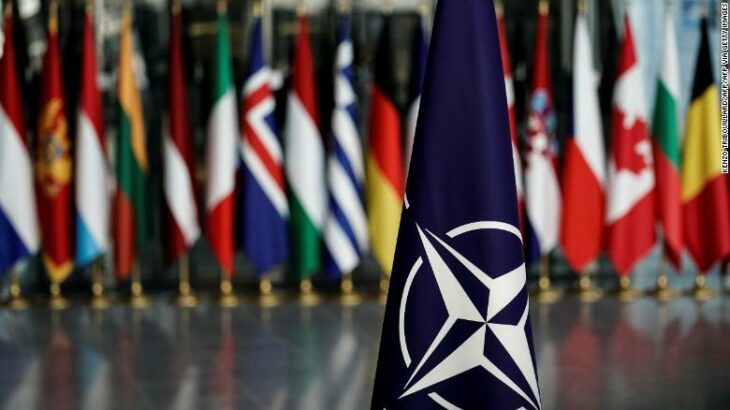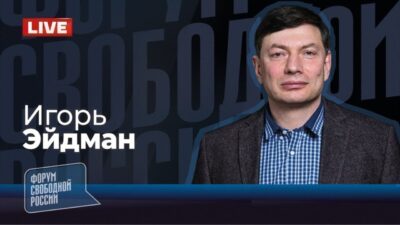
t was, perhaps, an unexpected way to mark NATO’s 70th anniversary. At a remarkably rancorous bilateral meeting with French President Emmanuel Macron on Tuesday, U.S. President Donald Trump—a longtime fierce critic of the North Atlantic alliance—found himself in the unusual position of defending it, after being praised for his leadership by NATO Secretary-General Jens Stoltenberg.
Only weeks after Macron—in a jab at Trump—had said the alliance was suffering “brain death” because of failing U.S. leadership, the U.S. president began the NATO summit in London with a fiery opening salvo that was strikingly pro-NATO, saying Macron’s comments were “very, very nasty.”
“I think that’s insulting to a lot of different forces,” Trump said. “You just can’t go around making statements like that about NATO. It’s very disrespectful.” He added: “I would say that nobody needs NATO more than France.”
And even as the summit had Western officials on a knife’s edge over such political tensions, experts noted that NATO has pushed through a raft of major initiatives and reforms to modernize the institution and address threats from Russia, China, and instability in the Middle East.
Tensions have also eased somewhat over burden-sharing. Since Trump first took office in 2017, making a constant refrain of his demand that more allies share the defense expenditures—the United States currently pays 3.42 percent of GDP for defense—nine of NATO’s 29 members now meet the alliance’s benchmark of spending 2 percent of GDP on defense, compared to only four in 2014. And 16 NATO members meet the benchmark of spending 20 percent of their defense budget on new equipment to modernize their forces.
In a joint press conference on Tuesday, Stoltenberg credited Trump with at least some of that progress, saying Canada and European NATO members have increased defense spending by $130 billion since 2016, and that number is expected to increase to $400 billion by 2024. “We are making real progress, most importantly on the burden-sharing. And your leadership on defense spending is having a real impact,” Stoltenberg told Trump.
But several U.S. and NATO officials who spoke to Foreign Policy on condition of anonymity said they also fear Trump’s heavy-handed approach to getting allies to spend more will cause long-term political damage with U.S. allies. In Asia, Trump’s blunt push to get allies South Korea and Japan to pay more to base U.S. troops there has sparked diplomatic dust-ups and triggered new undercurrents of anti-Americanism in traditionally pro-U.S. countries.
On the military front, NATO has launched new measures to reorient its Cold War footing and better prepare to deter military aggression from Russia. NATO held over 100 military exercises in 2018 alone and is on track to do the same in 2019. It has created new command structures to deal with Russia’s increased military activities in the North Atlantic Ocean, as well as internal military mobility and logistical challenges. The alliance is also implementing a plan to have 30 battalions of troops, 30 aircraft squadrons, and 30 warships ready to deploy within 30 days of any military crisis in Europe, with an eye toward Russia.
“We are seeing a NATO that has more ready forces, more and better spending on the right things. So the military machinery is in excellent shape,” said Rachel Ellehuus, a former U.S. Department of Defense official now at the Center for Strategic and International Studies.
Even so, there are many other tensions to be addressed at the summit. Trump’s maximum pressure campaign against Iran and abrupt decision to withdraw troops from northeastern Syria without consulting allies shook the alliance. Then Macron rankled not only Trump but also other allies by saying the alliance should focus on terrorism, not Russia or China. Meanwhile, Turkey is standing by its decision to purchase Russian air defense systems, undercutting alliance security and eroding an already wilting relationship with the United States. And Trump’s heavy-handed drive to get NATO to spend more on defense has yielded results but continues to fray relations with U.S. allies.
All the tension is coming to a head just weeks before British Prime Minister Boris Johnson faces a fierce election battle against his top rival, Jeremy Corbyn, who has called for NATO to be disbanded.
The U.S. and French presidents engaged in a tense back-and-forth over other issues as well, in an appearance before reporters later in the day. Trump broached the subject of foreign fighters in the Islamic State terrorist group who are from Europe. “We have a tremendous amount of captured fighters, ISIS fighters over in Syria. And they are all under lock and key, but many are from France, many from Germany, and many are from the U.K. They’re mostly from Europe,” Trump said, then turned to Macron. “Would you like some nice ISIS fighters? I can give them to you.”
“Let’s be serious,” Macron responded, then corrected Trump, saying that most fighters are from the Middle East and not from Europe.
Western officials quietly fear there is plenty more time for fireworks as the meetings continue in London. “There is just this enormous amount of anxiety walking into this meeting, and everyone is holding their breath hoping that they can just get through it,” said Julie Smith of the German Marshall Fund of the United States, a Washington-based think tank.
At the meeting in London, U.S. and NATO officials say the alliance will also discuss potential threats from China’s investments in Europe’s critical infrastructure, including its 5G networks, and space as a security domain, following Trump’s directive to the U.S. military to create a Space Force in 2018. Smith said work on these fronts is being done “on autopilot.”
“It is hard to get big, bold ideas through because of the turmoil, so what you have to look for are kind of small victories and what you can achieve without the top,” she said.
One of the primary concerns for the alliance heading into the meeting is Turkey, a NATO member since 1952 whose overtures to Russia have alarmed U.S. and NATO officials.
Turkish President Recep Tayyip Erdogan has doubled down on plans to begin operating Russian air defense systems as relations between Washington and Ankara plunge to new lows—although Trump continues to publicly praise his Turkish counterpart, even granting him a coveted Oval Office meeting and White House press conference. Erdogan shrugged off grave warnings from other alliance leaders and has also floated plans to purchase new Russian warplanes in an escalating tit-for-tat that seems to have no offramp. While Trump has held off imposing mandatory sanctions on Turkey for purchasing the S-400 missile system—which Ankara recently began testing—U.S. lawmakers have indicated they may act unilaterally.
Democratic lawmakers have slammed Trump for not punishing Turkey for its decision. “I don’t know how you let a NATO ally walk away scot-free from doing business with the Russians that compromises our collective security,” Democratic Sen. Chris Murphy told Foreign Policy.
“If we were living in a normal world, the alliance would carefully calibrate the message that it’s sending to Turkey together,” Murphy said. “The NATO alliance is incapable of acting as a unit today because of President Trump, so we are stuck operating in a less than optimal position given the inability of the alliance to speak with one voice.”
Republican Sen. James Risch, the chairman of the Senate Foreign Relations Committee, told Foreign Policy in a recent interview he would soon move forward with sanctions legislation on Turkey and questioned Ankara’s commitments to NATO. “Turkey is a NATO ally. They need to start acting like a NATO ally,” he said.
“If you’re a member of an organization and you’re not acting like a member of the organization, there’s no sense being a member of that organization. But these are choices they have to make and they shouldn’t be that difficult, but they’re making it very difficult,” he said.
Meanwhile, French leaders are lashing out at what they see as rash U.S. foreign-policy decisions, particularly Trump’s move to withdraw troops from northeastern Syria, where French and British forces were still covertly fighting the Islamic State. Macron’s headline-grabbing comments are his way of “trying to wake Europe up,” Smith said
“What Trump did left not just the U.S. military in the lurch, but the French and Brits are on the ground too,” said Jim Townsend, a former top Pentagon official on NATO policy under President Barack Obama. “It was just unacceptable.”
France is also trying to go its own way on dealings with Iran, with Macron leading a failed effort earlier this year to broker talks between Washington and Tehran. France is attempting to drum up support for a European-led maritime coalition in the Persian Gulf to protect commercial shipping from potential Iranian attacks, in parallel to a similar U.S.-led effort that includes the United Kingdom and Albania. But so far, the effort has not gotten much traction.
“Historically, the allies know that the French were going to lead in order with French national agenda, whereas the U.S. was less likely to do that,” Townsend said. “We’ve been known to put aside a national agenda using allies for our ends, but now allies aren’t so sure that’s where we’re coming from.”
Source: Foreign Policy




